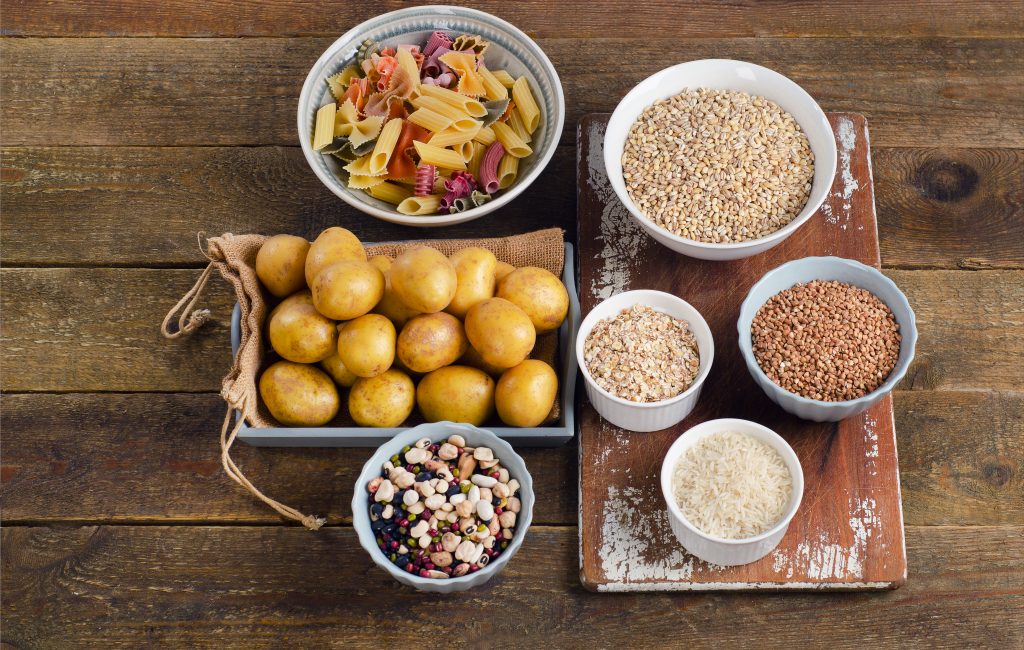 At some point or the other, we have come across the term Carbo-Loading. While there are some people who know what it is, there are people who are unaware about this helpful hack. Carbo-Loading is the process of ‘loading’ your body’s muscles with excess glycogen. Glycogen is the energy source derived from eating carbohydrates and Carbo-Loading when done well, can lead to improvement in performance of endurance athletes.
At some point or the other, we have come across the term Carbo-Loading. While there are some people who know what it is, there are people who are unaware about this helpful hack. Carbo-Loading is the process of ‘loading’ your body’s muscles with excess glycogen. Glycogen is the energy source derived from eating carbohydrates and Carbo-Loading when done well, can lead to improvement in performance of endurance athletes.
What is Carbo-Loading?
In detail, Carbo-Loading means eating excess carbohydrates to fill the muscles with glycogen while also lowering your activity levels 3-4 days before the event.
Glycogen is the fuel which powers our body when we exercise. The carbohydrates that we eat are broken down to make glycogen, which is stored in the muscles to provide energy while exercising. The main aim of Carbo-Loading is to ensure that muscles have larger energy stores so that they don’t tire easily. Just like a car with a full tank would run longer, similarly, glycogen loaded muscles will perform longer.
Who needs Carbo-Loading?
Carbo-Loading helps athletes who compete in endurance events such as running over 10 kms, triathlons, treks, etc. Since the body already has enough glycogen stored in the muscles, it can perform short exercises with like weight training or jogging at sustained energy levels. It is the endurance runs which makes us use all our resources. This is where the extra glycogen can help to avoid cramps, prevent fatigue and keep one going till the finish line.
How to Carbo-Load?
Now this is the most important part. If done correctly, you will surely reap the benefits. If done incorrectly, it won’t help you much. It may even lead to feeling heavy before the marathon and even vomiting. You usually start 3-4 days before the event. It is recommended to start with 5 gm carbohydrates per kg body weight. You can increase it to 7-8 gm from your second attempt at Carbo-Loading.
4 Days Before the Event: You are eat the same number of calories as before but 60-70% of it should come from carbohydrates. Mostly complex carbs.
3 & 2 Days Before the Event: Eat more of simple carbs. They will provide instant energy! It is important to avoid processed forms of these simple carbs (like biscuits, rusk).
1 Day Before the Event: Almost all the carbohydrate calories should come from simple carbs one day before the event. Your last dinner before the event should be at least 12 hours prior to the race. The dinner should be heavy, made entirely of simple carbs, with little fats and proteins.
Before the Event: 2-3 hours before the event, eat a light and easy simple carb snack and also keep it for eating during the race.
Some Simple Carbs: Banana, milk, curd, honey, white bread, white rice, potato
Some Complex Carbs: Chapati, pulses, brown rice, sweet potato, green leafy vegetables, apples
Few Tips to Remember During Carbo-Loading
- As it involves eating a high carb diet, people with diabetes and other medical problems which restrict the consumption of carbohydrates should consult their doctors before starting
- Perform only light exercise when starting Carbo-Loading and rest the entire day before the event
- Avoid adding new foods to your routine
- Avoid eating fiber rich foods as they will give a feeling of satiety
- Eat a moderate amount of fats and proteins
- On all days of Carbo-Loading, eat 5-6 meals instead of eating only three to avoid a feeling of heaviness
- After the event, have a carb-only meal to replenish the glycogen stores
- Eat some salty snacks after the event (preferably salted nuts)
- Drink lots of water during and after Carbo-Loading
Effects of Carbo-Loading
- You will see a slight weight gain but it will only be due to the body retaining excess water. This weight will be gone in 1-2 days after the event
- Expect a little stomach discomfort in this phase. It will not bother you much if you divide the total calories into 5-6 meals for the day
Have any questions about Carbo-Loading? Ask a GOQii Coach by subscribing for Personalised Health Coaching here.
#BeTheForce




Very well documented.
Thank you Deepanshu for the knowledge share.
As a GOqii coach, your tips are already helping me but this document will definitely help for endurance sports like Treks.
Thank you.
Hads off ☺️☺️